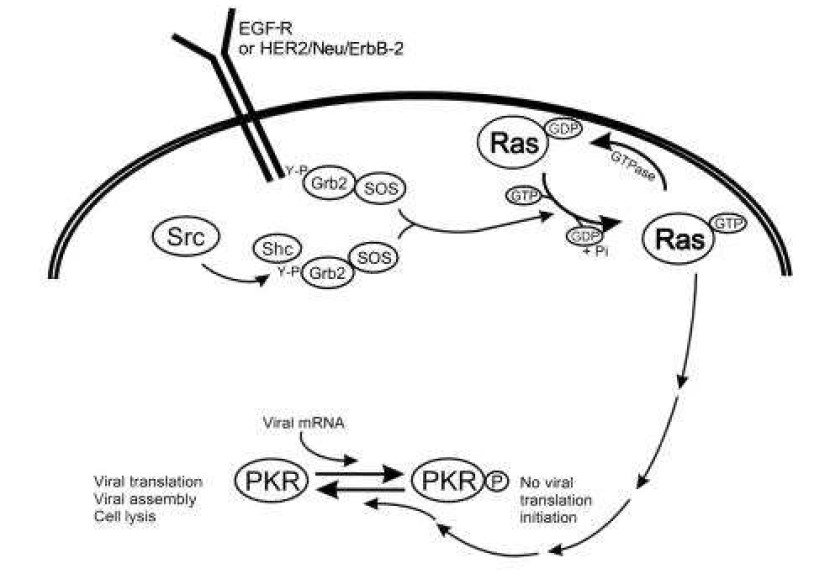Oncolytic Viruses in Rectal Cancer Treatment
Rectal and/or colon cancer is called colorectal cancer and is the fourth most common cancer in the United States. The two types of cancer are grouped because they have many characteristics and are treated similarly. About one-third of the 145,000 cases of colorectal cancer diagnosed each year are found in the rectum. Therapies for those with unresectable or recurrent disease are not considered curative at present. Recently, oncolytic virus therapy (OVT) is a new potential treatment option for rectal cancer.
About Rectal Cancer
The rectum is the last six inches of the large bowel, connecting the colon to the anus. Rectal cancer occurs when cells in the rectum mutate and lose control. The disease may also develop when growths called polyps on the inner wall of the rectum develop and become cancerous.
- Symptoms
- Diagnosis
- Treatment
Rectal cancer may have no obvious symptoms at an early stage. As the disease progresses, symptoms may include changes in bowel movements, rectal bleeding, and thin banded stools. If cancer metastasizes or spreads to other parts of the body, symptoms may vary depending on where the cancer is.
Various laboratory and imaging tests can be used to diagnose rectal cancer and determine the stage of the disease. Commonly used processes and tools include laboratory tests (such as blood tests and advanced genomic tests), biopsy, colonoscopy, imaging tests (such as magnetic resonance imaging (MRI), computed tomography (CT scan), and ultrasound).
The treatment of rectal cancer usually depends on the stage of the disease and its degree of development. Treatment options include surgery, chemotherapy, radiation therapy, targeted therapy and new biological agents (such as OVT).
OVT in Rectal Cancer
Oncolytic virus (OV) is a new therapeutic method that is being widely studied. These viruses selectively infect cancer cells, causing them to lyse, while healthy cells remain intact. So far, vaccinia viruses (VACVs) and reoviruses (RVs) have been studied as OVs, targeting colorectal cancer cells, which can effectively lyse cancer cells and cancer stem cells.
- VACV
- RV
VACV belongs to the family of poxvirus, and it is a kind of enveloped virus. It is regulated by a series of early, early/late and late virus promoters, controlling the initial non-enveloping, DNA replication and immature virus particle recombination, forming a linear double-stranded DNA genome. The large genome with nonessential genes, wide host range, cytoplasmic replication, histotropism and vector stability makes it an attractive vector to express tumor-associated antigens, cytokines, T-cell costimulatory molecules and other genes under the control of vaccinia promoters. At present, the therapeutic effect of VACV combined with chemical drugs on patients with colorectal cancer is evaluated in the phase I trial.
RVs belong to the family Reoviridae and are relatively nonpathogenic in humans. According to its hemagglutination inhibitory activity, there are three serotypes of RV, which widely exist in the environment. These viruses have an undeveloped icosahedral capsid, core and a nucleoprotein complex. The capsid is 60 nm in diameter and has a double protein shell. The genome consists of 18-30 kb long linear double-stranded RNA. Similarly, an oncolytic RV, is also being evaluated in combination with chemical drugs or antibodies for the treatment of K-ras mutant metastatic colorectal cancer.
 Fig.1 Usurpation of the Ras signaling pathway by RV. (Della, 2015)
Fig.1 Usurpation of the Ras signaling pathway by RV. (Della, 2015)
Although there are still many obstacles to overcome, compared with the current treatment, this novel method is considered to be less active, more effective, and with the least side effects. Therefore, as a positive practice method, it will show a broad prospect in the future.
As a pioneer and undisputed global leader in the development of OVTs, Creative Biolabs is actively launching our OncoVirapy™ platform to accelerate the success of immunotherapy for rectal cancer.
Reference
- Davis, Della, and S. Lahiri. "Application of oncolytic viruses for cure of colorectal cancer." Cancer Res J 3.4 (2015): 76. Distributed under Open Access license CC BY 4.0, without modification.
